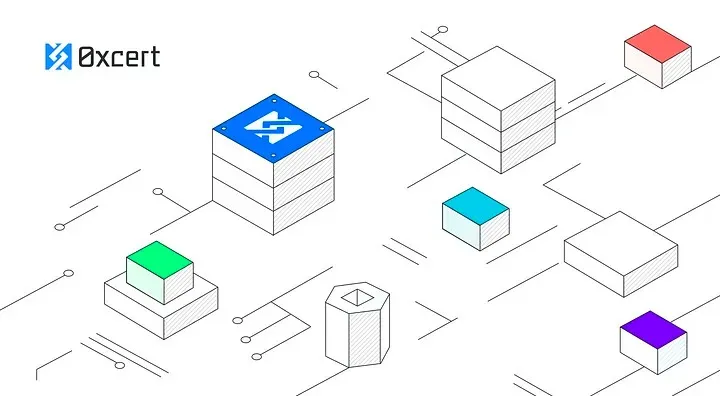
0xcert was a pioneering project in the non-fungible token (NFT) space, established before the widespread adoption of NFTs and the formalization of the ERC-721 standard. The initiative aimed to provide a comprehensive framework for managing unique digital assets on the blockchain, facilitating the creation, ownership, and verification of NFTs. Our collaboration with 0xcert involved contributing to the development of the ERC-721 standard and introducing various innovations and smart contracts that were unprecedented at the time. Notably, we had the opportunity to work alongside William Entriken, the lead author of the ERC-721 standard. Additionally, we developed one of the first decentralized marketplaces for NFTs, further promoting the adoption of this emerging technology.
GitHub: https://github.com/0xcert
The Challenge
Building Everything from Scratch
When embarking on the 0xcert project, the blockchain ecosystem was still in its infancy. Essential tools and libraries such as Ethers.js and Hardhat were nonexistent, and there were no standardized smart contracts for NFTs. This lack of infrastructure meant that we had to develop foundational components ourselves. For instance, we created Specron, a lightweight framework for testing Solidity smart contracts, because existing tools like Truffle did not support the experimental Solidity v2 Application Binary Interface (ABI), which made it impossible to use structures in smart contract tests. Furthermore, we actively contributed to the establishment of the ERC-721 standard, authoring its reference implementation, which later became the official standard for NFTs.
Our Approach & Web3 Tech Stack
Our collaboration with 0xcert was highly agile, with our developers fully integrated into the 0xcert team. This close partnership allowed us to work seamlessly within the 0xcert organization, a necessity given the project's roots in the Initial Coin Offering (ICO) landscape.
Key Features Built by Our Team
01 Official ERC-721 Standard Reference Implementation
We authored the reference implementation of the ERC-721 non-fungible token standard, providing a foundational framework for NFT development.
02 Pioneering ERC-721 Contract Deployments
Our team executed one of the first official ERC-721 standard contract deployments on the Ethereum mainnet, setting a precedent for future NFT projects.
03 ERC-721 KYC Token-Gated ICO Contracts
We developed the first-ever ERC-721 KYC token-gated ICO contracts, integrating Know Your Customer (KYC) compliance into the token issuance process.
04 ERC-721 Contract Validator
To ensure the integrity and standard compliance of NFT contracts, we created an ERC-721 contract validator, facilitating the verification of contract adherence to the standard.
05 Open-Source Framework for Managing NFTs
We developed the 0xcert Framework, a JavaScript library designed to simplify the creation and management of NFTs, thereby accelerating dApp development.
06 Many-to-Many ERC-721 and ERC-20 Atomic Swap
Our team implemented one of the first decentralized marketplaces for NFTs, enabling atomic swaps between ERC-721 and ERC-20 tokens, which allowed for secure and trustless exchanges of assets.
07 Open-Source Smart Contract Testing Environment
We created Specron, an open-source framework for testing Solidity smart contracts, addressing the need for reliable testing tools in the early stages of blockchain development.
08 API for Managing NFTs
Based on the 0xcert Framework, we developed an API that facilitated NFT management and accepted ERC-20 token payments, streamlining the integration of NFTs into various applications.
09 Evidenspace Platform
We contributed to the development of Evidenspace, a platform for issuing NFTs, which expanded the practical applications of NFTs across different sectors.
10 Contribution to EY's Nightfall
Our team collaborated on Ernst & Young's Nightfall project, contributing our expertise in zero-knowledge proofs and blockchain privacy solutions.